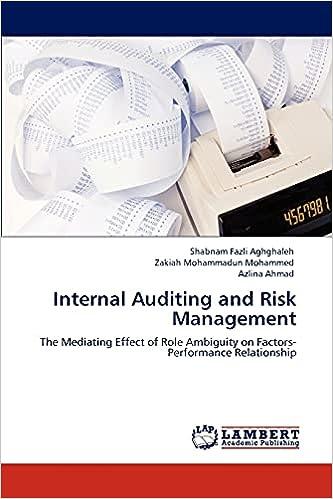Question
No copy paste from previous chegg questions please. (200 words) Ethics Issue (Page 5-28): Elizabeth (Liz) Young, senior manager in the tax group in the
No copy paste from previous chegg questions please. (200 words) Ethics Issue (Page 5-28): Elizabeth (Liz) Young, senior manager in the tax group in the Cleveland office of Tics & Tax, an international professional services firm, was reviewing the workpapers related to the tax return to be filed by her biggest client, General Inertia. She was intrigued by one of the items listed under other deductions (line 26 of Form 1120), which was described as a settlement amount of $100 million. After consulting with the director of taxes at General Inertia, Dee Ductit, Liz discovered the amount related to a settlement with the Department of Justice (DOJ) for violation of the False Claims Act. Dee described the settlement as a penalty (her words) the firm had to pay to the federal government because one of its divisions billed the Department of Defense (DOD) for work that was not performed in relation to a contract to provide helicopters to the DOD. Dee's use of the term penalty caused Liz to question whether such a payment was deductible for tax purposes (the company also deducted the payment on its financial statements). In particular, she remembered that Code 162(f) specifically prohibits the deduction of any fine or similar penalty paid to a government for the violation of any law. When Liz asked to see the settlement letter from the DOJ, she was told that the client's legal department considered the terms of the letter to be confidential, but that the company's reason for deducting the amount was that the letter did not describe the settlement as a penalty and specifically stated that nothing in the agreement characterizes the payments for federal income tax purposes. General Inertia is a long-term client that provides the firm with $10 million in audit and tax fees annually. Dee informed Liz that the company was willing to take the risk in deducting the full amount of the settlement payment because its IRS auditors were unlikely to question the item and the tax refund from deducting the settlement ($35 million) would help alleviate some short-term cash flow problems the company was having. In fact, the company hoped to use the refund to pay off parts suppliers that were threatening to take the company to court over nonpayment. The company also preferred not to provide any further disclosure or description of the deduction in the tax return so as not to alert the IRS to a potential tax audit issue. What do you think of the tax director's approach to filing the company's tax return? What would you do if you were in Liz's position?
Step by Step Solution
There are 3 Steps involved in it
Step: 1

Get Instant Access to Expert-Tailored Solutions
See step-by-step solutions with expert insights and AI powered tools for academic success
Step: 2

Step: 3

Ace Your Homework with AI
Get the answers you need in no time with our AI-driven, step-by-step assistance
Get Started


